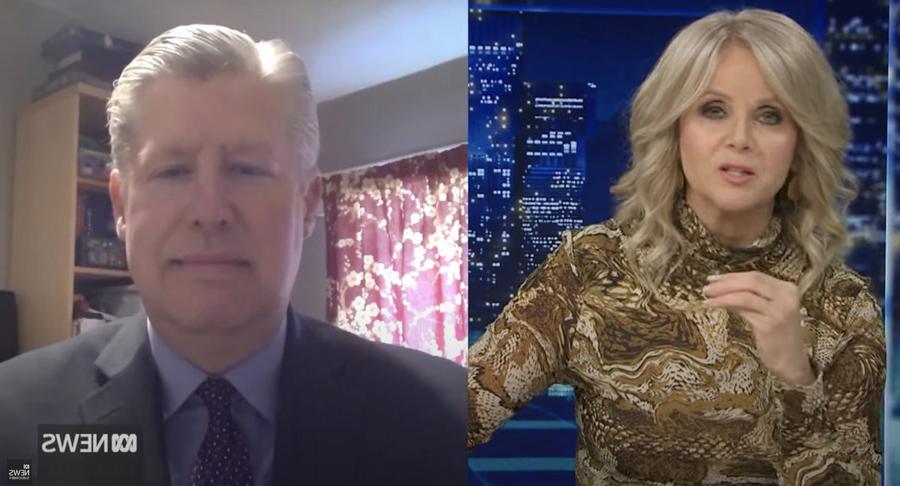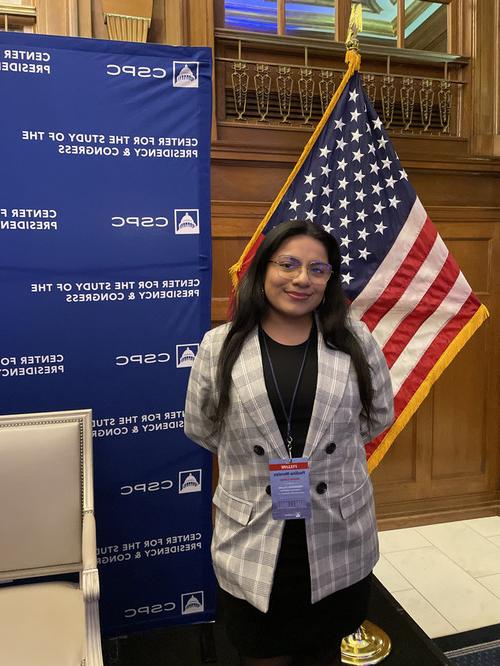China's Global Trade Tensions Explained
作者:汤姆·波特In an interview with Bowdoin 新闻, Heurlin also considers the likely impact of the upcoming US election, China’s trade relations with Europe, and why he’s cautiously optimistic about the future.

How did the trade war between the US and China come about?
克里斯托弗Heurlin: The trade war in some ways was a long time coming. Trade with China since the early 2000s has brought lots of cheap goods to the US that benefited consumers. 但同时, these cheap goods replaced similar goods manufactured in the US and led to the loss of perhaps two million American jobs. This came to be known years later as the “China Shock.”
The backlash to trade with China in Congress began to intensify around 2012 or so, when more and more opponents of free trade with China began to be elected to Congress. The trade war as we know it began under President Trump in 2018 with tariffs on many goods from China. They’ve continued under Biden in large part because opposing free trade with China has become a rare area of bipartisan agreement. 买球平台贸易问题, Biden and Trump have disagreed in their tone, but less so in the substance of trade policy.
鉴于这种, what impact is the outcome of the US election likely to have on relations between Beijing and Washington?
CH: Under a second Biden term, I’d expect relative continuity in US trade policy. One of the hallmark differences in Biden’s and Trump’s China policies has been Biden’s effective coordination with US allies in the region, 比如日本, 韩国, 和印度. This has contrasted with Trump’s more confrontational approach to traditional US allies.
It’s less clear what a second Trump term would look like. He’s floated the idea of 60 percent tariffs on Chinese goods, but implementation of his proclamations is unpredictable. The Chinese did not live up to their 2020 deal to purchase $200 billion in additional US imports, and any kind of a grand deal on trade doesn’t seem very likely. I’d wager that the trade war will continue in some form. Chinese election interference in 2024 has mostly focused on promoting Trump, suggesting that Beijing is pulling for a Trump victory.
What’s the likely impact of all this on US consumers and businesses?
CH: Tariffs are paid by importers in the US of foreign goods. This may cause higher prices for consumers and contribute to inflation, but I’ll leave speculation on how much to the economics department.
Trade relations between China and the European Union also seem to be intensifying. 这背后是什么??
CH: The clearest lesson of the recent G7 summit is that Europe and the US are united in their unease about China’s economic policies. European leaders seem to have concluded that their policies are not working, and the recent European tariffs on Chinese electric vehicles are a sign of that. 不像在美国, Chinese electric vehicles are more common in Europe, making these tariffs meaningful.
Looking ahead more generally, do you have any grounds for optimism regarding US-China relations?
CH: Despite economic tensions—which are significant—overall the US-China strategic competition has stabilized somewhat. Washington and Beijing seem to have found the floor in US-China relations, and we are starting to see more restabilization of ties and exchanges in the political and military realms. Military-to-military communication has been reestablished, and cabinet secretaries and ministers are shuttling back and forth between Washington and Beijing more frequently.


